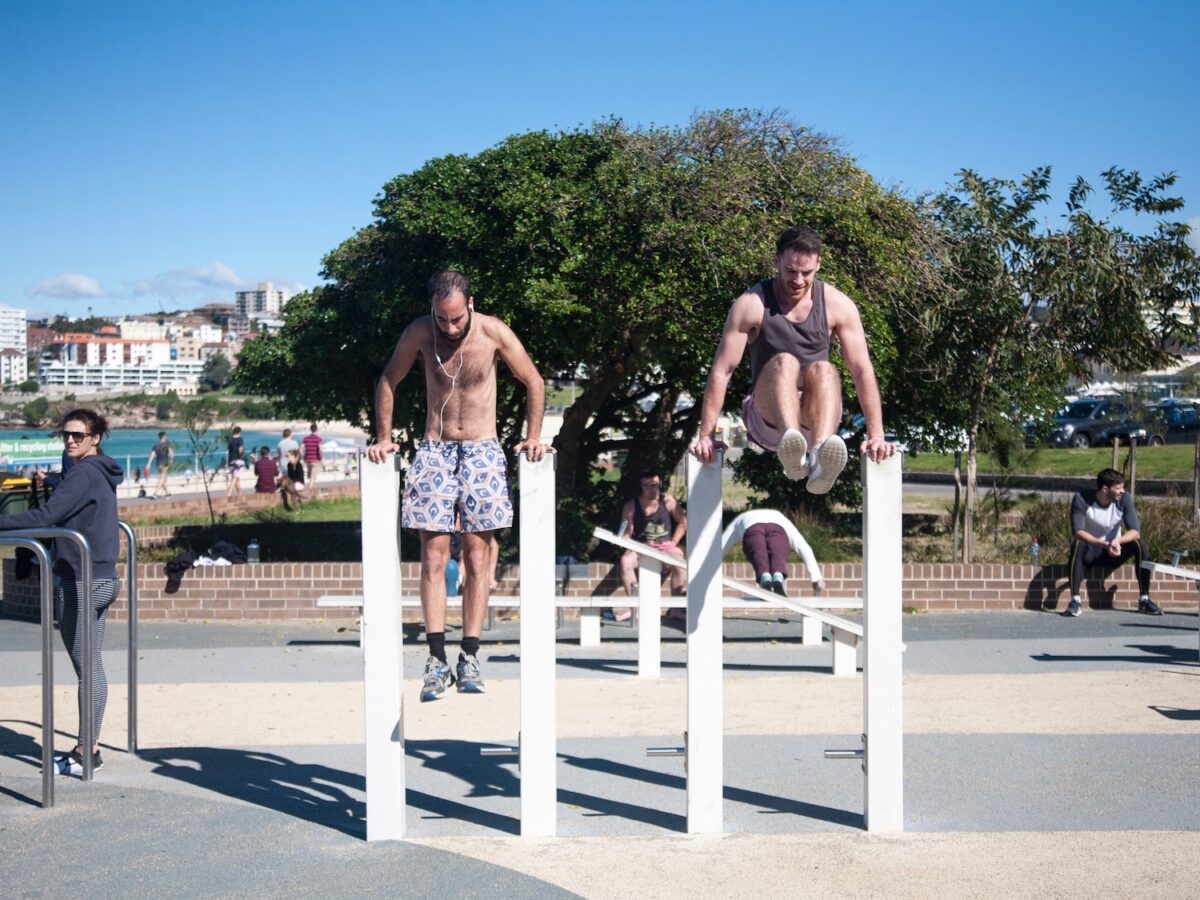New research reveals that exercise could be far more effective for treating a number of mental health issues than prescribed medication or therapy, including one of the most prevalent – depression. But is there evidence to suggest that Australian men had cottoned onto this long before the boffins dropped their data?
Nearly half of all Australians will experience a mental health issue in their lifetime, as the global mental health crisis continues to snowball with no signs of slowing down.
Millions report experiences of depression, anxiety, and swathes of other mental health conditions. This situation was only worsened by the COVID-19 pandemic with many finding themselves suddenly isolated, out of work, and facing uncertain futures.
Traditionally prescribed treatments like medication and cognitive behavioural therapy (CBT) can, of course, be extremely effective in some cases, but a new study from the University of South Australia suggests that working out could be significantly more effective in managing a huge amount of mental health conditions.
This new paper aggregates more than 1,000 research trials with a total of nearly 130,000 participants. It found that doing 150 minutes (2.5 hours) of physical activity per week significantly reduces depression, anxiety and distress compared to standard treatment options.

An important thing to note is that the study also found that the higher the intensity of the exercise, the better it is for your mental health; powerwalking is better than walking, running is better than powerwalking, and so on.
As ever when it comes to your health, consistency is crucial too: exercising regularly for six to twelve weeks was found to have a much greater benefit on long-term mental health than shorter bursts. So, don’t just hit the gym when you’re feeling down – keep at it to stave off a return of the blues.
Exercise also has significant upsides compared to prescribed medications, including greatly reduced cost, no dodgy side effects, and long-term physical health benefits.
RELATED: Aussie Bloke Shows How Boxing Can Help You Kick Depression’s Ass
But why is this the case? How does more exercise lead to better mental health on the chemical level? In the short term, dopamine and endorphins are released immediately after exercise which boosts your mood and keeps stress at bay: this is where that buoyant feeling you get after your workout, the so-called “runner’s high”, comes from.
In the longer term, exercise promotes changes in the brain’s responses that aid with mood stability, cognition, and increased immune functions. Regular exercise also leads to improved sleep (which is critical for treating depression and anxiety) as well as increasing self-esteem through consistent accomplishment.

Here’s the thing: though the new data is obviously welcome news for all Australians, we couldn’t help but wonder if some Aussies, especially the blokes, may have intuitively cottoned on to this fact long before the data was released…
Though Australian men and women suffer from mental health conditions at pretty much equal rates, men are 30% less likely to seek help when they need it and three times more likely to die by suicide. On top of that, nearly half of the men who accessed therapy later dropped out prematurely, with many citing that they found the process emasculating.
RELATED: Struggle To Talk Openly With Your Mates? This Is The Solution
However, online trends in combination with some separate data could lead us to believe that men aren’t leaving therapy to abandon their self-care goals altogether. Rather, they may just be swapping the chaise longue for the locker room.
Only 2 in 5 Aussie women are deemed to be “sufficiently active” compared to 1 in 2 of their male counterparts, with 28% of women reporting at least 30 minutes of physical activity a week versus 34% of men. This may be less than the 150 minutes recommended by the latest research, but it could give us a glimpse into a broader trend…
Social media trends are also revealing: videos featuring male figures with the hashtag #gym as well as #sad or #depressed proliferate on TikTok, which some racking up millions of views and hundreds of thousands of likes.
Moreover, many such videos also seem to dovetail depression treated via exercise as being inherently more masculine than other treatment options. Or, at least, more masculine than the traditional view that mental health is best treated by addressing and talking through one’s feelings.
Memes on the topic also proliferate. The darkly funny but relatable “Guys Have Only Four Ways Out of Depression” meme exploded onto the internet in 2021 and has never really gone away. Though much of the joke here relies on swapping out at least one of the four options with increasingly absurd treatment suggestions, the figure of an incredibly ripped, athletic bloke is by far the most consistent.
RELATED: I Paid $6,000 To Share Feelings With 20 Strangers In Byron Bay. It Was Totally Worth It.
So it seems that this is a trend that has been years in the making and, we would hypothesise, one that existed “IRL” long before the social media age. Men have always found exercise to be a more appealing and effective treatment method than traditional routes, for better or for worse.
Though men getting more exercise and – if this new data is correct – improving their mental health through it is a good thing, the way that masculinity and solipsistic self-treatment becomes intertwined with notions of masculinity is problematic.

Men should keep hitting the gym by all means, but they should do so alongside a medically-prescribed treatment and with an open mind: exercise is one great option for bettering your mental health, but therapy and medication may be better suited for some or even great allies alongside intense workouts.
Whichever way you go, the most important thing is to never do so alone. If you’re having mental health issues, tell your partner, your mates, or your doctor before picking up the barbell. A problem shared is a problem halved and, before you know it, you might even find yourself with a brand-new gym buddy.The post Exercising Is Better For Depression Than Medication Or Counselling, Study Confirms appeared first on DMARGE.
 .
.
0 Commentaires